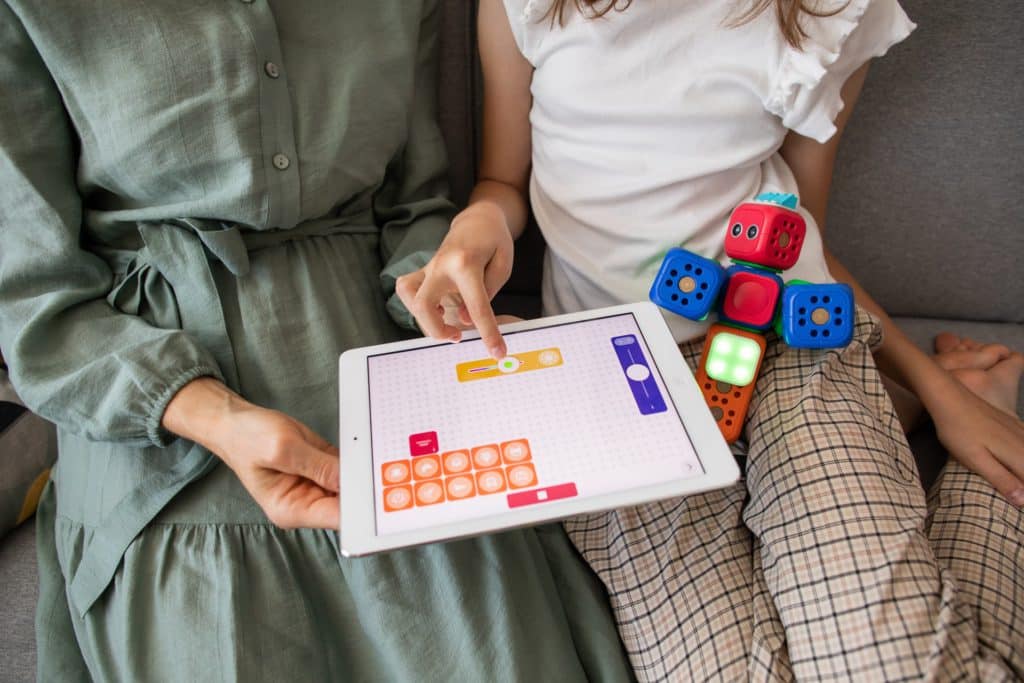
Coding for Children: 5 Essential Skills Kids Can Learn with the Hobby
Programming is an important lesson for educating children who interact with various gadgets and technologies daily, given that exposure through classroom opportunities can help clear any misconceptions the kids may have about the digital world. As documented in a study on “Investigating Preschool Educators’ Implementation of Computer Programming”, many schools are making efforts to integrate programming as part of their regular curriculum.
Learning about programming doesn’t restrict a child to the digital screen, either; coding teaches children new methods of absorbing information or performing tasks across different fields and interests — which they can apply to off-computer experiences such as pattern recognition and task sorting. Read on to learn more about useful skills children can learn while coding.
Digital literacy
In our modern age, much of the information we keep involves the use of technology to store data. In fact, Maryville University’s write-up on the future of data science notes that the nationwide use of data science platforms is expected to double in the next two years. The field of computer and IT science, in particular, will continue to expand at a growth rate of 19% between 2016 and 2026, with proficiency in coding languages and data analysis becoming key requirements in many high-paying tech jobs.
For many children, it would be hugely beneficial to equip them with relevant digital literacy skills. Even before landing jobs as adults, children can use their familiarity with coding to understand digital applications and supplement their schoolwork. Their digital awareness would also help them be more aware of current cybersecurity practices.
Analytical thinking
Rather than simply following a set of instructions, children in programming can learn how to break down problems and analyze them accordingly. When they encounter a problem, children who code would be at ease, looking for patterns and finding connections which can help them hypothesize on possible solutions.
This, in turn, helps them build problem-solving skills that are crucial in other aspects of life – especially in adulthood, where analytical thinking and deduction are highly valued by employers. That’s why our article on “What Age Can Kids Start Coding” highlights how it’s best to start programming lessons early when children can process new information faster. Having a head start on problem comprehension, children become more proficient earlier, developing essential critical thinking skills in their formative years.
Creativity
When it comes to coding, most professionals need to think outside the box and experiment. Once they’ve applied their analytical skills to taking apart a programming problem, children can express their creativity by solving it in their own unique ways. They can experiment with the different solutions that come to mind, or reframe the way they look and think about the problem.
With computer programs providing quick feedback on what works and what doesn’t, kids are encouraged then to try until they succeed and discover an answer that matches their needs. From here, children also learn that failure isn’t the end — it just means you need more creative ways to solve an issue.
Mathematical ability
Coding requires logic to organize and analyze data – which can be easily translated into mathematical ability. By learning how to program, children can visualize how algorithms and abstract concepts work. They’ll be able to solve math problems more effectively.
Walden University’s study on children’s math development found that students who take coding classes often have better math grades than those who were not taught computer coding. In addition, math can become more fun to learn because children can use their skills to create something and see the results almost immediately.
Another fun way for kids to better their mathematical skills is to take extracurricular math lessons online with a tutor that takes a different approach to teach than traditional schools.
Confidence
Kids can become more confident in themselves by building their coding skills, especially as part of the learning process for programming is working with other people. Contrary to popular belief, coding is not always a solo activity and many programmer jobs involve operating in development teams.
When given an opportunity for collaborative teamwork, children can show what they’ve learned and succeed in achieving their goals – helping them build confidence in their capabilities. They can also bring this confidence to other situations, such as school and other extracurricular activities.
Final thought
When a child learns to code, computer programming is not the only thing they pick up. There are several hard and soft skills they can learn during the process that will help them in future endeavors. Starting young will boost their confidence and set them up for success.
Content prepared by Alicia Benjamin for the exclusive use of gobrite.io
- Popular Kids Education Platforms Review - February 10, 2023
- Pros and Cons of Opening a Kids Coding Franchise - January 31, 2023
- How can coding help kids reduce screen addiction - January 30, 2023